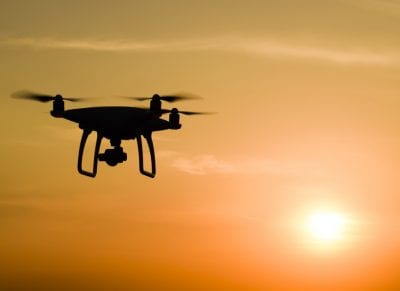Shippers are enthusiastic about drone technology because the devices could greatly cut delivery times and costs.
The drone revolution will disrupt an assortment of industries, from agriculture and filmmaking to transportation and healthcare. Logistics will have to adapt to changes as more retailers experiment with drones and the technology evolves to be cheap and efficient. The transportation industry will be transformed by drones, especially in terms of last-mile service.
Online retailer Amazon has been testing drone delivery since 2013. Google has pledged drone delivery service by 2017 and Wal-Mart is currently testing drone use.
But, there are various barriers for the technology to overcome. One barrier is communication – there has to be undisrupted communication between drones and airplanes to avoid collisions in the crowded airspace. Other barriers include battery safety and longevity, legislation, insurance, and privacy.
Noticeably missing from the list of barriers to drone technology is weight and distance. Amazon, for example, claims that 86% of its packages weigh under 5 pounds. And Wal-Mart has said that 70% of Americans live within 5 miles of a Wal-Mart. This is optimistic news for the future of drone delivery.
In Switzerland, flying vehicles have replaced postal carriers in tough-to-reach regions. American regulators phased in commercial drone flights this year, starting with limited flights of small drones weighing 55 pounds or less.
What exactly is a drone? According to a Wired article, a drone refers to an aircraft that has the capability of autonomous flight, which means they can follow a mission from point to point, guided by a GPS or sensors. Drones, also known as unmanned aerial vehicles (UAV), carry some sort of freight, which could include a camera or sensor, and eventually your products, and also have a way to transmit data wirelessly back to its base.
The drone business is predicted to boom by more than 6,000% by the end of the decade, according to a PwC report. The global market for commercial applications of drone technology is estimated at $2 billion, and will balloon to as much as $127 billion by 2020.
Currently, drones can’t match the abilities and efficiencies of a truck, but the technology is captivating. Once the major obstacle of legislation is finalized, it’s likely we’ll see more companies integrating this technology into their supply chain.
Continue reading about technology transforming transportation:
- A Fully Automated Transportation Industry is Closer than You Think
- What is ITS? How Will it Help America’s Infrastructure?
- The Keys to Omni-Channel Success


